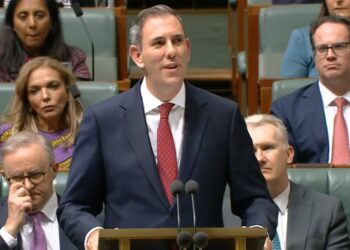Reflecting on the news that AMP’s various dealer groups have each suffered a decline in adviser numbers, a longstanding authorised representative of AMP Financial Planning said the momentum would be even more advanced if the institution didn’t make exiting so difficult.
The practice principal, who spoke to ifa on condition of anonymity, said he has considered leaving his current AMP-owned licensee, but that to do so would leave his clients and business in a vulnerable position.
“Due to initial contracts AMP Financial Planning owns the clients, including ones I have brought in over the years,” the principal explained.
“Sure this should be considered before signing up, but when starting out you are at the mercy of anyone who is willing to assist.”
In order to leave AMP FP, the adviser says he faces three undesirable options.
The first is to exercise AMP’s Buyer of Last Resort (BOLR) offer, which would see him “written out of the industry for three years”, an option that is “not ideal as most people like to have an income”.
The second would be to sell the book to someone else within the licensee, which he says is “unethical” as he would be offloading clients he had every intention of coaxing back.
And the third is to take out a loan to pay a penalty, “surrender the clients to AMP” for a period but remain in the industry, meaning he would be free to leave but “with no clients and a six-figure debt”.
“There are dozens, maybe hundreds, of aligned planners who cannot leave due to these constraints,” he alleged.
“If the industry is truly going to change, surely the planner having a choice of independent, aligned or non-aligned is a good place to start.”
Another principal, speaking to ifa on the same condition, says he is in the process of trying to bring a current AMP adviser over to his own AFSL, but is experiencing similar problems.
“Overcoming the onerous dealer lock-ins, conflicts of interest and largesse [such as] easy money, percentage-based fees, insurance commissions, BOLR at above market value etc, is a huge hurdle,” the adviser said.
“BOLR is keeping a lot of people [from moving]. They are hamstrung. You have to be really brave to leave and sure you can recover.
“Rules have changed and there needs to be a phase-out of BOLR. I think it needs to go completely.”
The comments follow the revelation that nearly 600 individual advisers left the AMP network in the past year.
In response to a request for comment from ifa, an AMP spokespersons said: “The BOLR service has always been designed to be an option of last resort for advisers who are looking to retire and exit the industry.”
“While the BOLR service is suitable for some advisers, the majority choose to transfer their client registers to other adviser firms within the network which we fully support.”
This story has been amended to clarify that nearly 600 advisers left AMP, not more.




It really doesn’t take much thinking to see the number of ways this situation could be handled and sidestepped
please explain
AMP have ”registers'” the advisers don’t own the client and there job is to service the register and sell more product. If the adviser makes money/wage/profit from servicing the register, flogging more product or FUM then it’s a win for them and AMP. Think of a vampire sucking blood from a corpse. The word clients or people are often foreign and this advisers is confused as he thinks he has clients and cares about them. There’s nothing wrong with people getting advice about a product and institution like AMP but it’s not the same thing as people getting advice. One model is not the makings of a profession
I think this is what it was a few years ago, but not so much now. Some advisers would write only AMP as they were AMP planners but the introduction of BID would cause them to fail audits and be pushed out. Advice does occur that doesn’t concern products, and I do think that products are just enablers of strategy. If you don’t care about your clients you can’t really expect to have an advice business.
Poor AMP advisers – I’ve never met a bunch of such unhappy millionaires, courtesy if BOLR. Words like cake and eating it spring to mind
Bitter much? I think it’s time to not think of a client base as an asset, rather as an income stream for providing a service. Client relationships aren’t really transferable. I’m sure there are many planners who are relying on BOLR for retirement, but this shouldn’t be the case for the current generation of advisers.
“…we are programmed to receive. You can check out any time you like, but you can never leave.”
Exactly the same problem for us here at Bridges.
AMP would drop BOLR today if they could because of the massive liability they have to carry. But the older AMP advisers which are the ones who have all the say and are going to get so fat when they retire over the next few years because BOLR is paying them way over market.
The interesting bit of AMP’s comment is that they support transfers to other house licensees. In practical terms AMP only has one licensee offer and they just fudge differences with different names so why would any adviser go from say AMPFP to Charter when everything you get is the same???? The advisers who want to leave want to go to a licensee that has a more appropriate offer for their practice and their clients and you can’t do that by staying “within the family”.
The bigger problem is really not how it affects advisers but how BOLR, and how an adviser can manipulate it, influences the products sold to clients and hence the independence and suitability of any advice. BOLR, or its maximum multiple, only gets paid on corporate product. Now that’s where the regulator has to look beyond what is disclosed on an SOA to the client.
But its not all brickbats to AMP because many advisers wouldn’t be in the industry if it wasn’t for their processes and offers so it’s fair that AMP should have a minimum expectation of loyalty until their investment is paid back. That’s only fair in business. But one the investment has been paid back …….
There is a big difference between AMPFP and Charter. Under Charter the practices have the default clause on client ownership, so they can leave more easily. Something AMP better starting waking up to because there are more unhappy Charter advisers than AMPFP advisers, particularly with the revolving door in AMP/Charter management.
If you change from AMPFP to Charter, the clients transferred are still AMPFP owned but you can keep the ones you bring in from then if you leave. But definitely a benefit of Charter.
I feel for these blokes but they entered into contracts freely, fair enough for the media to pressure them about it and for the advisers to whinge and whine, but amp hasnt really done anything wrong
no way, this is exactly the sort of stuff that gets us new red tape and inquiries and bad press, incentives to stay within the group, keep pushing product etc. the above sums up all that is wrong with insto advice!!!!
I would agree they haven’t done anything wrong, but the industry is changing and having a strong dealer group offer should be the only reason someone stays – it’s about choice.
Can they really enforce the 3 year rule to not be a licensed adviser?, surely that would not stand up in court of law, stopping someone from earning an income in their chosen profession is ludicrous
No chance would that hold up in court. Unenforceable.
Condition of contract that is signed to allow payment, a type of non compete within a certain distance.